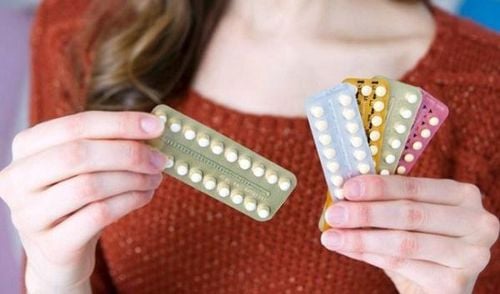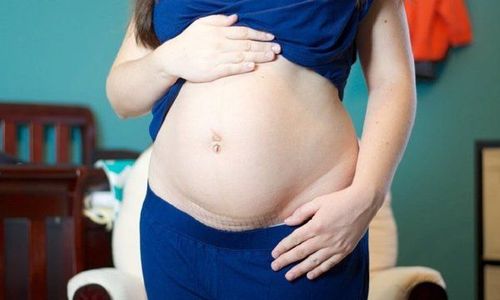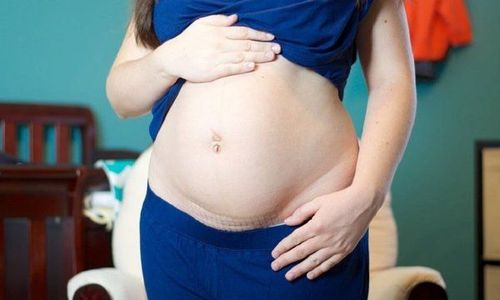This is an automatically translated article.
The article was professionally consulted by Specialist Doctor I Tran Thi Phuong Loan - Obstetrician and Gynecologist - Department of Obstetrics and Gynecology - Vinmec Phu Quoc International General Hospital.Did you know that getting pregnant after a cesarean section or giving birth too soon after giving birth can put both you and your baby at risk. Getting pregnant within a year of giving birth increases the chance of a premature birth, and premature babies can have many health problems. So how long do experts recommend to be pregnant after giving birth?
1. Is it easy to get pregnant after giving birth?
Whether you have a vaginal birth or a cesarean section, your body still has the ability to get pregnant very quickly after giving birth, for example there are cases of pregnancy 5 months after a cesarean section. You may ovulate before your first postpartum period, and soon after you ovulate, you may begin to conceive.Although experts advise against having sex before your follow-up visit after six weeks of giving birth, in fact sex at this point still happens. If you don't use birth control, you could get pregnant. You and your partner may consider alternatives to sex because of the need to recover from childbirth and to prevent pregnancy.
Breastfeeding, although it can delay ovulation in some women, is not a 100% effective method of birth control, unless you are following lactation amenorrhea (LAM) . Under this method, you shouldn't use a breast pump, your baby should never have a pacifier, and the baby won't sleep through the night. This is a standard that is difficult for most women to achieve.
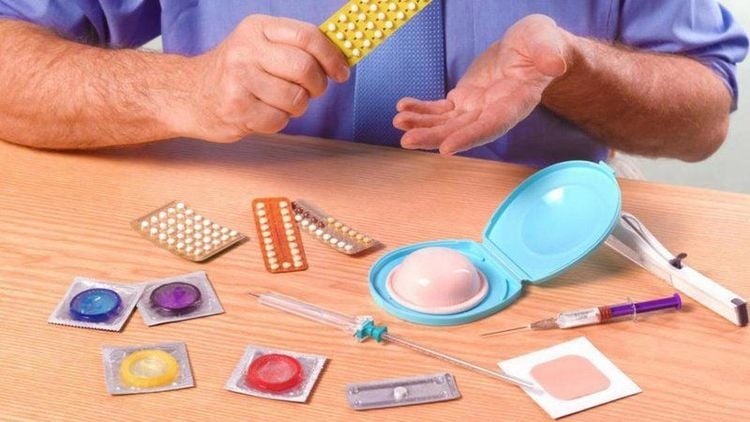
According to the US Centers for Disease Control and Prevention (U.S. CDC), 3 factors must be present for LAM to have the best chance of preventing pregnancy:
The baby must be under 6 months of age. After 6 months, breastfeeding often becomes less frequent, increasing the risk of ovulation again. The mother must breastfeed exclusively or almost exclusively. Giving formula or other foods increases the time interval between feedings. Breastfeeding on demand with intervals of no more than 4–6 hours is the most effective strategy. The mother is not menstruating. Although not all women who menstruate are fertile, the return of a period indicates that the body is preparing to ovulate. Research on the effectiveness of LAM is still difficult. A major challenge of this method is that it is difficult to accurately implement it in practice. Being away from your baby overnight or working for days can create a gap in breastfeeding that makes it less effective.
According to experts, LAM is about 98% effective when the mother uses this method in the first 6 months after giving birth.
After 6 months postpartum, LAM begins to be less effective. Women who do not want to become pregnant again should start thinking about using another method of contraception.
Trắc nghiệm: Bạn có hiểu đúng về dấu hiệu mang thai sớm?
Các dấu hiệu mang thai sớm không phải chỉ mỗi trễ kinh mà còn có rất nhiều dấu hiệu khác như xuất huyết âm đạo, ngực căng tức,… Điểm xem bạn biết được bao nhiêu dấu hiệu mang thai sớm thông qua bài trắc nghiệm này nhé!
2.Risk of pregnancy within six months of giving birth
There is strong evidence that women who give birth close together are more likely to have a second pregnancy. This is because their bodies have not fully recovered from childbirth. Even if you feel healthy, your body is actually adjusting to changing hormone and nutrient levels.If you get pregnant within six months of giving birth, your baby has an increased risk of complications such as:
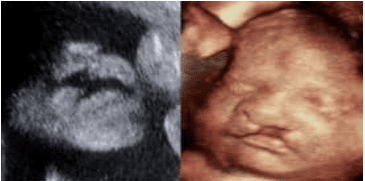
The American College of Obstetricians and Gynecologists recommends waiting at least six months or more after your last baby, before becoming pregnant again, and to watch out for the risks of getting pregnant earlier. 18 months after birth.
In addition to the complications mentioned above, conceiving within 18 months after giving birth will increase the risk of some complications in the next pregnancy such as: increasing the risk of the baby having asthma, growth retardation, and other complications. vision and hearing problems later on.
Experts aren't sure why, but shorter intervals between pregnancies have been linked to these complications. It could be due to residual inflammation in the uterus from a previous pregnancy and because the body did not have enough time to replenish the vitamins and nutrients it needs for the next pregnancy.
However, many babies conceived soon after their mothers became pregnant are born perfectly healthy.
On the other hand, some studies have also shown that waiting longer (more than 60 months or 5 years) between babies is also associated with an increased risk of similar complications, including preterm birth and underweight children.
The bottom line is that you need to talk to your doctor about the best time for your next baby. In the meantime, take precautions and use birth control when you start having sex again after giving birth, whether you're breastfeeding or not.
That way, you'll avoid unplanned pregnancies and you'll increase your chances of keeping yourself and your next baby healthy when you're ready for your next one.
If you get pregnant after a cesarean section or have a vaginal delivery too soon after giving birth, it can be risky for both you and your unborn baby. Therefore, you should use safe contraception when you have sex right after giving birth to avoid unwanted pregnancy. If you have unusual symptoms, you should be examined and consulted with a specialist.
Doctor Tran Thi Phuong Loan was former Head of Obstetrics and Gynecology Department, An Giang Central General Hospital; Doctor treated at Hoang Anh Gia Lai University of Medicine and Pharmacy Hospital before working as an Obstetrician and Gynecologist at Vinmec Phu Quoc International General Hospital as it is now.
If you have a need for consultation and examination at Vinmec Hospitals under the nationwide health system, please book an appointment on the website for service.
Please dial HOTLINE for more information or register for an appointment HERE. Download MyVinmec app to make appointments faster and to manage your bookings easily.
References: verywellfamily.com, medicalnewstoday.com







